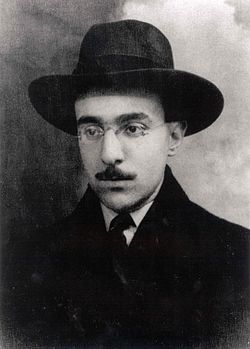Fernando Pessoa Quote
I don’t know if I have a fever, as I feel I do, or if I’ve stopped having the fever of sleeping through life. Yes, I repeat, I’m like a traveller who suddenly finds himself in a strange town, without knowing how he got there, which makes me think of those who lose their memory and for a long time are not themselves but someone else. I was someone else for a long time – since birth and consciousness – and suddenly I’ve woken up in the middle of a bridge, leaning over the river and knowing that I exist more solidly than the person I was up till now. But the city is unknown to me, the streets are new, and the trouble has no cure. And so, leaning over the bridge, I wait for the truth to go away and let me return to being fictitious and non-existent, intelligent and natural.
I don’t know if I have a fever, as I feel I do, or if I’ve stopped having the fever of sleeping through life. Yes, I repeat, I’m like a traveller who suddenly finds himself in a strange town, without knowing how he got there, which makes me think of those who lose their memory and for a long time are not themselves but someone else. I was someone else for a long time – since birth and consciousness – and suddenly I’ve woken up in the middle of a bridge, leaning over the river and knowing that I exist more solidly than the person I was up till now. But the city is unknown to me, the streets are new, and the trouble has no cure. And so, leaning over the bridge, I wait for the truth to go away and let me return to being fictitious and non-existent, intelligent and natural.
Related Quotes
Let my silence grow with noise as pregnant mothers grow with life. Let my silence permeate these walls as sunlight permeates a home. Let the silence rise from unwatered graves and craters left by bomb...
About Fernando Pessoa
Pessoa was a prolific writer both in his own name and approximately seventy-five other names, of which three stand out: Alberto Caeiro, Álvaro de Campos, and Ricardo Reis. He did not define these as pseudonyms because he felt that this did not capture their true independent intellectual life and instead called them heteronyms, a term he invented. These imaginary figures sometimes held unpopular or extreme views.
